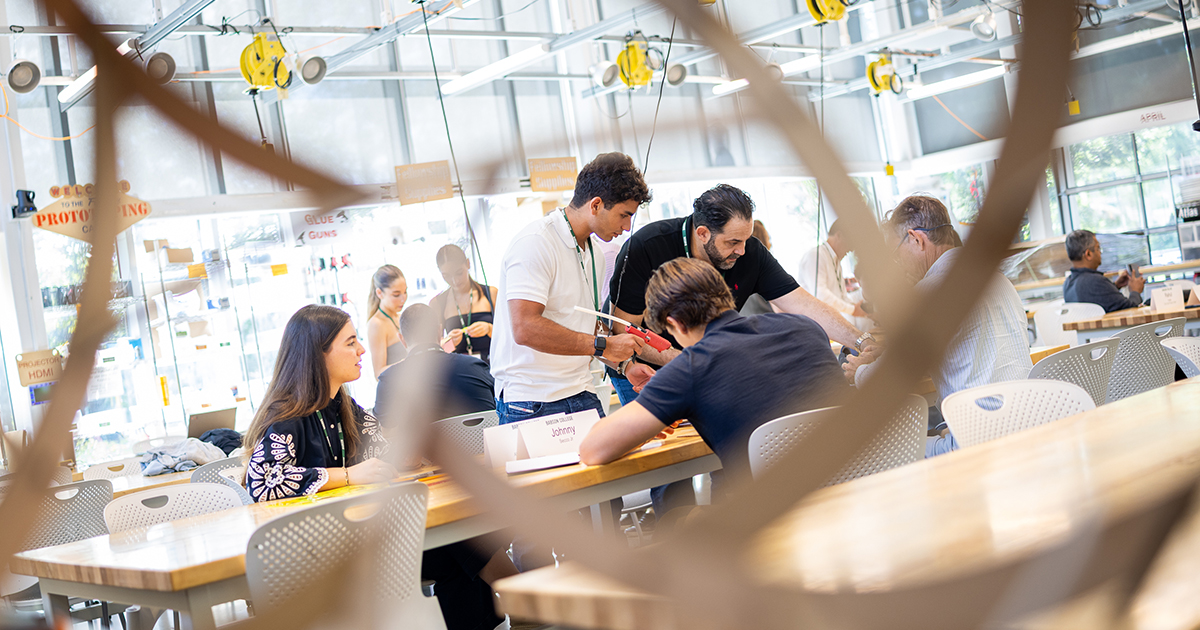‘Out of Your Comfort Zone’: How International Education Spurs Critical Thinking

Around the world over the last calendar year, virtual communication has kept businesses running and classes going.
At Babson College, much of these same technologies have helped fill the void of international education disrupted by the pandemic, as students have participated in virtual exchange opportunities and online electives abroad, because of travel and hospitality restrictions.
“It is not necessary for one to leave home to gain intercultural competence,” says Amir Reza, dean of the Babson Academy for the Advancement of Global Entrepreneurial Learning. “Those opportunities to be in a place other than one’s home present opportunities to be out of your comfort zone, to be observant of what’s around you.”
Even virtually, the impact of those learning opportunities is immeasurable—both in understanding other cultures and our world at home.
Unifying a Divide
At an October discussion on the intersection of social justice and international education, LaNitra Berger, senior director of the Office of Fellowships in the Office of Undergraduate Education at George Mason University, noted how COVID-19 is impacting Black, Hispanic, and Latino persons at disproportionate rates.
The pandemic, and fight against social injustice following years of disproportionate violence against Blacks at the hands of police, have galvanized many in working toward a path to change.
“This is the most important time for us to be working toward social justice,” Berger said. “All these factors are coming together to allow us to be able to come together to think about how we can make meaningful change right now.”
“Without getting out of your comfort zone, it’s hard to have any critical-thinking skills. Your lived experiences will be the norm if you’ve surrounded yourself with people who are similar to you.”
Lorien Romito, senior director of international education
The stark divide between America’s classes has been evident for decades. But, according to Reza, these economic differences provide opportunities to learn experientially and take steps toward change, even if you’re virtual.
“We tend to, as a whole, grow up monocultural,” Reza said. “It’s only when we encounter differences, we start to have reactions. At the edge of your comfort zone, the maximum learning happens.”
Continuing a Cross-Cultural Experience
By taking advantage of virtual international programming despite the circumstances, students are able to “learn to see what they don’t see,” said senior director of international education Lorien Romito.
“Without getting out of your comfort zone, it’s hard to have any critical-thinking skills. Your lived experiences will be the norm if you’ve surrounded yourself with people who are similar to you.”
In her talk, Berger petitioned for the removal of internal boundaries, which allow us to greater experience other cultures.
“Why is it so important for us to push ourselves and our boundaries? Comfort has two sides,” she said. “It allows us to let our guard down, but it can also reveal inherent biases that are shaped by our social identities.
“In an international context, being uncomfortable is a sign that you’re growing, you’re learning new skills, such as language skills, cultural competency, and empathy. If people understood what was happening in communities right next door to them, they might not be able to handle it. Considering that that is many people’s lived experience, we have to figure out how we’re going to come together and understand these issues.”
Posted in Community




